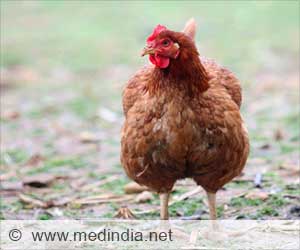First human case of the deadly H7N9 bird flu has been reported in Hong Kong, say sources.

In all, 137 human cases of H7N9 have been reported in mainland China since February with 45 deaths, according to the World Health Organisation.
In April Taiwan reported its first case, a 53-year-old man who had been working in eastern China.
The man was eventually discharged but the case prompted the island's authorities to begin research into a vaccine they hope to roll out by late 2014.
Secretary Ko said Hong Kong had suspended the import of live poultry from Shenzhen and escalated the grade of its flu contingency plan to "serious", according to the RTHK report.
People who had come into close contact with the patient recently have also been admitted to another hospital for isolation and testing.
Advertisement
The infection comes 10 years after the Severe Acute Respiratory Syndrome (SARS) outbreak swept through Hong Kong, killing 299 people and infecting around 1,800.
Advertisement
A report by researchers published in The Lancet medical journal in October said closing live poultry markets, though a huge economic setback, is a sure-fire way of curbing H7N9.
Source-AFP








